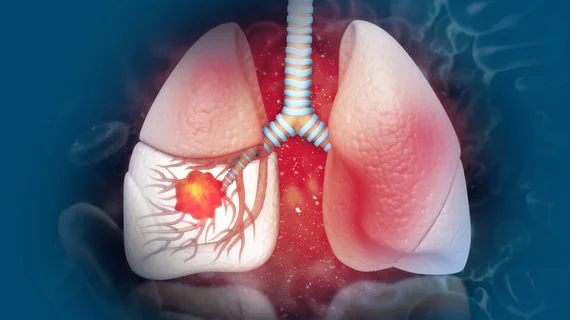Natural language processing can be applied to free-text radiology reports for more precise lung cancer staging, according to a new analysis.
Dutch researchers unveiled their algorithm for quantifying the stage of pulmonary tumors according to the tumor node metastasis classification system on June 10 in Insights into Imaging. While the tool can only process radiology reports in Dutch, experts trained and validated it on some 400 English CT reports.
The English documents stacked up well to those in Dutch, but did stumble a bit translating certain free-text phrases and concepts, including descriptions of lymph node locations and more ambiguous terms like “involvement.”
Despite this, translated reports achieved a 0.89 accuracy for tumor staging compared to 0.88 for Dutch results, the authors explained.
First author J. Martijn Nobel, with the Department of Radiology and Nuclear Medicine at Maastricht University Medical Center in The Netherlands, and colleagues believe that with further tweaking, their tool may enhance imaging care.
“Lung cancer is the most common oncological cause of death, with imaging playing a great part in its diagnosis and staging,” the authors added. “Therefore, improvements in the reporting and staging process may be valuable. Specifically, it may speed up workflow and enhance the quality and accuracy of the radiological report, as well as communication between health professionals.”
The researchers further suggested adding machine learning to their NLP algorithm could go a long way toward improving its capabilities. Such an addition would detect related synonyms within free-text reports and boost accuracy scores.
It would, however, require more annotated data for training, they noted, which is often expensive and time-consuming.
But converting narrative-style reports into structured formats will be crucial to managing the ever-growing amount of data. A move that’s been promoted by both the European Society of Radiology and the Radiological Society of North America.
Read the entire study here.

